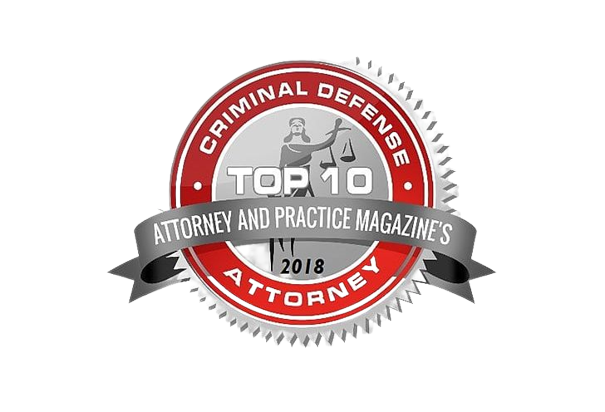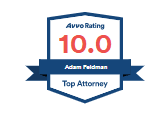Phoenix Stalking Lawyer
A Former Prosecutor on Your Side
Home > Stalking

2023 Super Lawyers

AV Preeminent Rated

Best Law Firm

A+ BBB Accredited
Stalking Defense Lawyer in Phoenix
What is Stalking?
If you have been charged with stalking, that charge could be based on any one of a number of alleged acts, some of which, in and of themselves, may appear to be completely harmless.
Stalking is defined in A.R.S. 13-2923, which says that it is a crime – a felony – to engage in “course of conduct” which is intentional or knowing, directed to another person, which causes the other person to suffer emotional distress or reasonably fear property damage or destruction, physical injury, or death. The statute goes on to say the fear caused could be of physical injury not only to the alleged victim, but also:
- to anyone in the household;
- to a family member;
- to a pet;
- to livestock;
- to a former household member; or
- to a person with whom the accused has or had a romantic relationship.
According to the wording of the statute, the conduct involved could be as simple – and as innocent – as being present in the same vicinity as the alleged victim.
Request Your Free Consultation
What is a “Course of Conduct”?
The statute specifies certain acts which satisfy the “course of conduct’ requirement. In order to commit the offense of stalking, that conduct must be knowing or intentional, and consist of doing, in person or through another person “or by any other means,” any of the following:
- Maintaining physical or visual proximity to a person at least twice;
- Making direct verbal, written or other threats, express or implied, on two or more occasions;
- Using a device (GPS, digital or electronic) to surveil a person or that person’s internet or wireless activity, without authorization, for a continuous period of 12 or more hours on two or more occasions;
- On more than one occasion, communicating (or causing to be communicated), through email, images, words or other electronic communication, that is directed at a person without authorization and without any legitimate purpose.
The statute, on its face, is vague enough to include activities that are not only innocent, but that may be constitutionally protected. Clearly, if the acts are protected under, for example, the First Amendment, there is no crime, and the statute specifically acknowledges this.
Award Winning Criminal Defense








Examples of Stalking
There are a host of acts which might be classified as stalking. Here are some common examples:
- Following a person home, to school, to work, or to other places;
- Emailing or otherwise communicating with the alleged victim;
- Threatening a person, either directly or indirectly;
- Threatening a person’s family, pets, or others with specific present or former relationships with that person;
- Causing damage to or destruction of a person’s property; or
- Posting information about the other person on the internet.
This is not to say, for example, that emailing someone can, in and of itself, constitute stalking. The other elements of the offense must also be proven beyond a reasonable doubt, including knowing or intentional behavior that would cause a reasonable person to suffer emotional distress or to fear for his or her physical safety (or for the safety of their property or certain individuals with whom they have a relationship). The law also requires a course of conduct, which means that the act must have occurred on at least two occasions.
Defending Stalking Charges in Phoenix, AZ
A stalking charge can be successfully defended. Even though the Arizona law, unlike some states, does not require that the conduct of the defendant be malicious, defenses are still available to counter a stalking allegation.
In the first instance, all the elements of the offense must be proven beyond a reasonable doubt. That includes the requirement in the statute that the conduct is intentional or knowing. The issue of your state of mind is an essential aspect of the charge. For example, being in the same place as the alleged victim two, three or even more times obviously does not mean, in and of itself, that there has been a violation of the stalking law. It does not mean, in and of itself, that you were surveilling that person, and similar conduct, in person or electronically, does not satisfy all the requirements necessary to establish a case.
At The Feldman Law Firm, we understand that people may be accused of stalking in situations where alleged victim may be either lying about or misinterpreting your actions or expressing fears that are simply unreasonable.
If you are facing a stalking charge, know your rights. Contact our office for a free consultation.
Criminal Law Firm Near You
Schedule a Consultation



